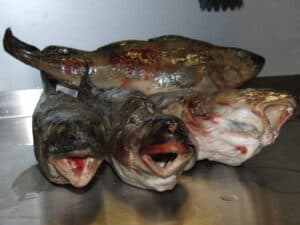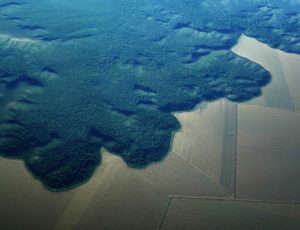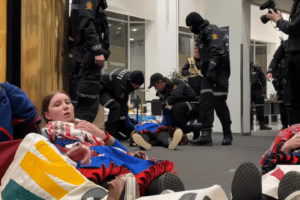The Norwegian Environmental Protection Association (NMF) is now pleased to see tendencies towards more municipalities wanting the farming industry to enter closed solutions. Now last in Tromsø municipality.
But in their eagerness to make this happen, the municipalities come up with a technology requirement for closed facilities during the area and planning roll-out in the municipalities. The farming industry then counters that such a requirement does not lie with the municipalities, but with the sector authorities.
What the NMF recommends the municipalities to do if they want farming in closed solutions is to demand full cleaning of the emissions, zero emissions of lice poisons, pellets and fish droppings into the sea, which they are fully entitled to demand under the Planning and Building Act § 12-7 no. 3 as a citation according to the law; "Can limit values be given for permitted pollution and other requirements for environmental quality in the planning area. This also applies to measures and requirements for new and ongoing activities in the planning area, or due to conditions outside the planning area. The municipality must coordinate the use of such provisions in the plan with the processing under the sector act where the plan allows for a measure that also requires permission under the sector act."
Osterøy municipality made such a demand regarding applications for the expansion of farming operations in 2017, and received support from the county council in Hordaland that the demand for zero emissions to sea was a legitimate demand supported by the legislation in the planning and building act.
NMF and several others see that such a requirement can only be solved by the farming industry switching to closed facilities. One thus achieves the same as requiring closed facilities, which is illegal to require because it is a technology requirement, by requiring full cleaning and zero discharge of lice poisons, pellets and fish droppings into the sea.
The EU's water directive is likely to be revised in 2021, which will make it difficult for the farming industry to comply with this directive with the current way of operating in open cages. It is therefore entirely possible to also refer to the EU's water directive, while at the same time requiring cleaning with zero discharge of lice poisons, pellets and fish droppings into the sea.
NMF believes that a requirement to clean up emissions is the best, as per To date, there are already closed facilities that meet this requirement. Ref. Aquafuture.
Zero emissions to sea is some way off, but will come when the logistics allow
reception of fish droppings and sludge from the completely closed facilities is in place.
Why can't the municipality require closed facilities in the planning work?
The NMF also reads the legislation so that the municipalities do not have legal authority for such a requirement. According to § 6 and § 8 of the Aquaculture Act, it is the sector authorities that can set a requirement for operating methods. In the first place, this is the County Governor, and in the next place the Ministry of Fisheries and Industry, which gives the aquaculture industry requirements for operations and operating methods during the award of licenses after the municipalities have set aside areas for aquaculture.
A requirement for closed facilities from the municipalities also violates Section 11-11 of the Planning and Building Act, provisions for area purposes pursuant to Section 11-7 nos. 5 and 6, which give instructions on the types of provisions that can be adopted. Decisions on the special design of floating installations, such as closed cages and the like, as well as requirements for operating hours at installations, cannot be set in accordance with these provisions.
A demand for closed facilities from the municipalities is therefore against the law, and they cannot therefore implement the decision when they come to the land roll.



